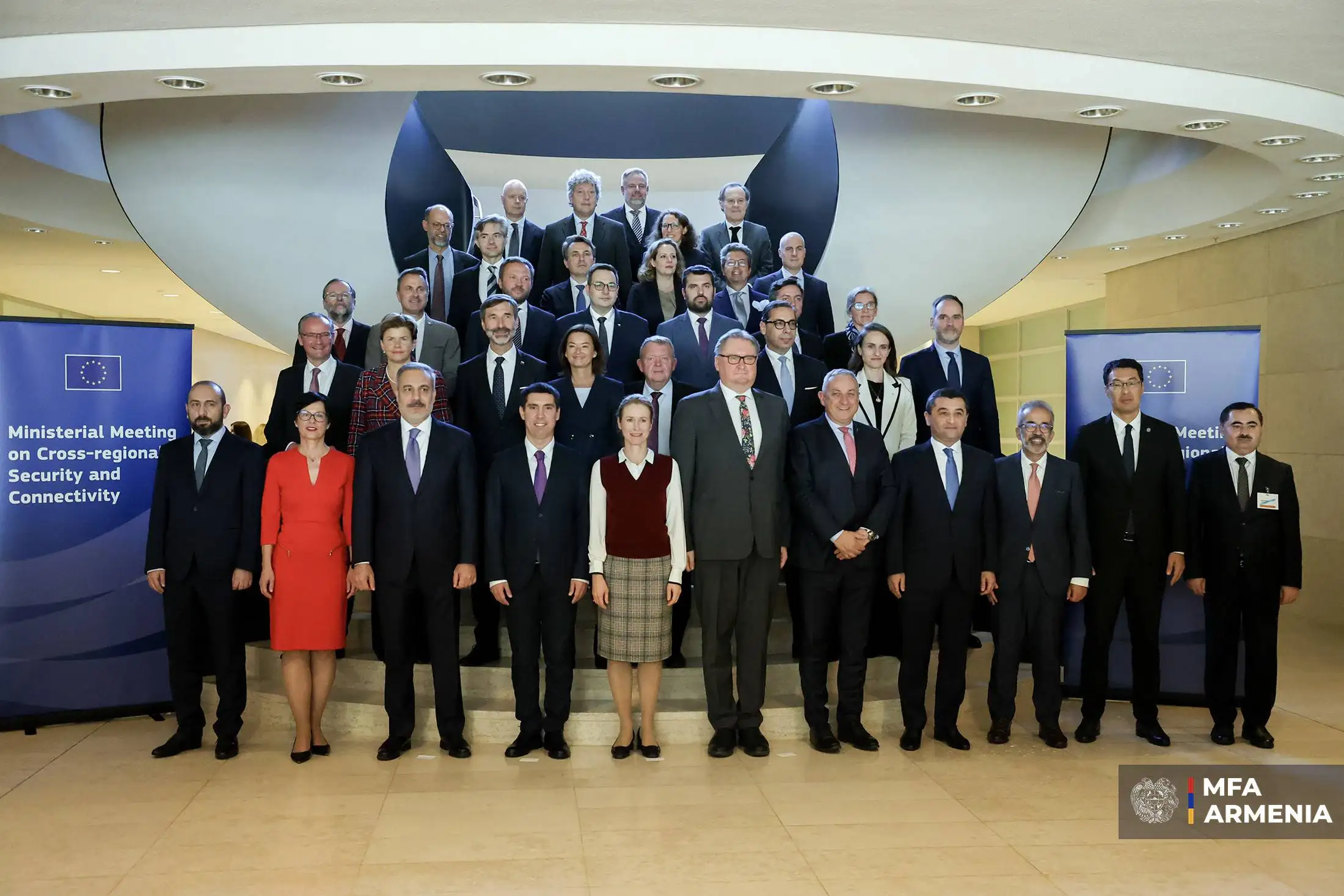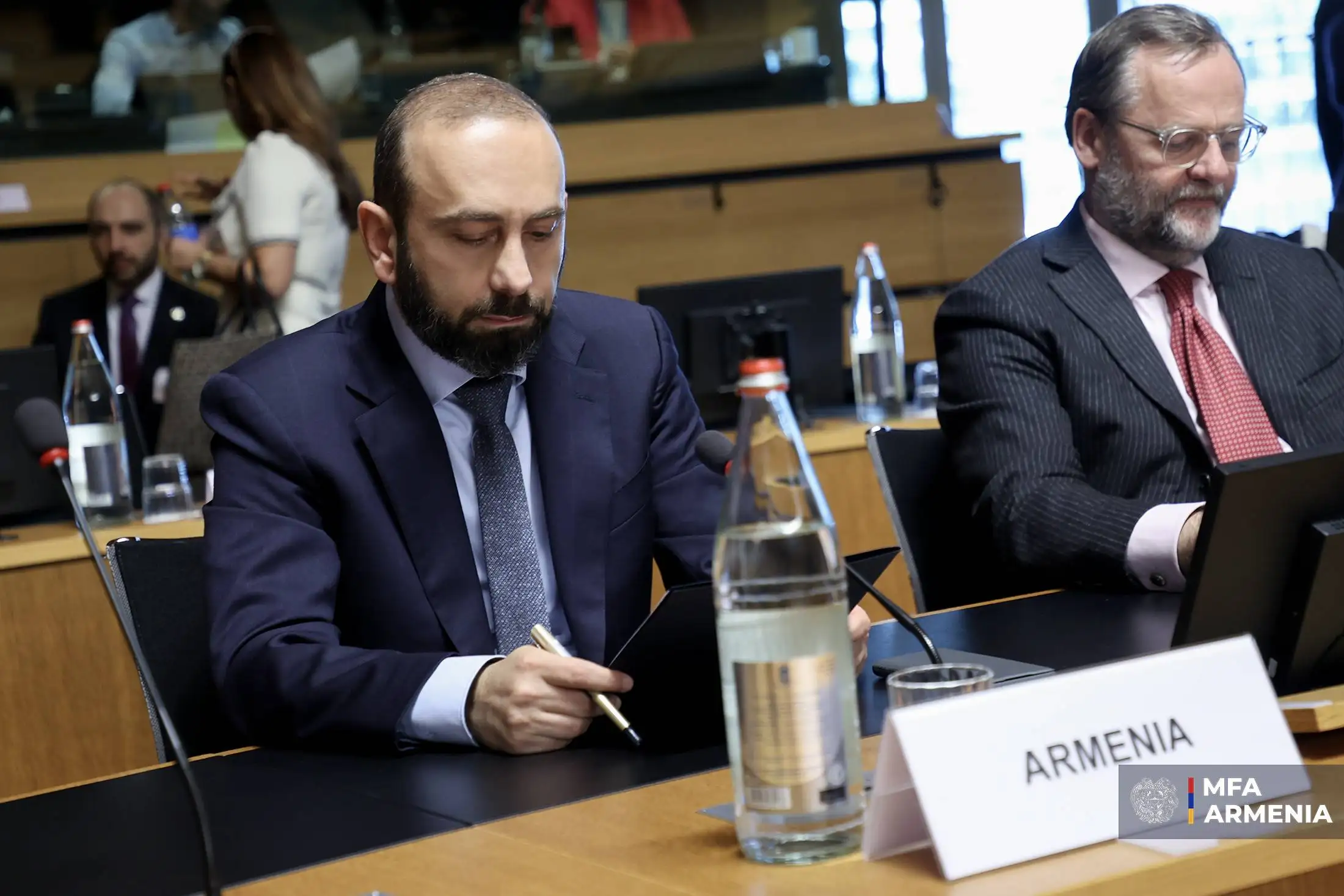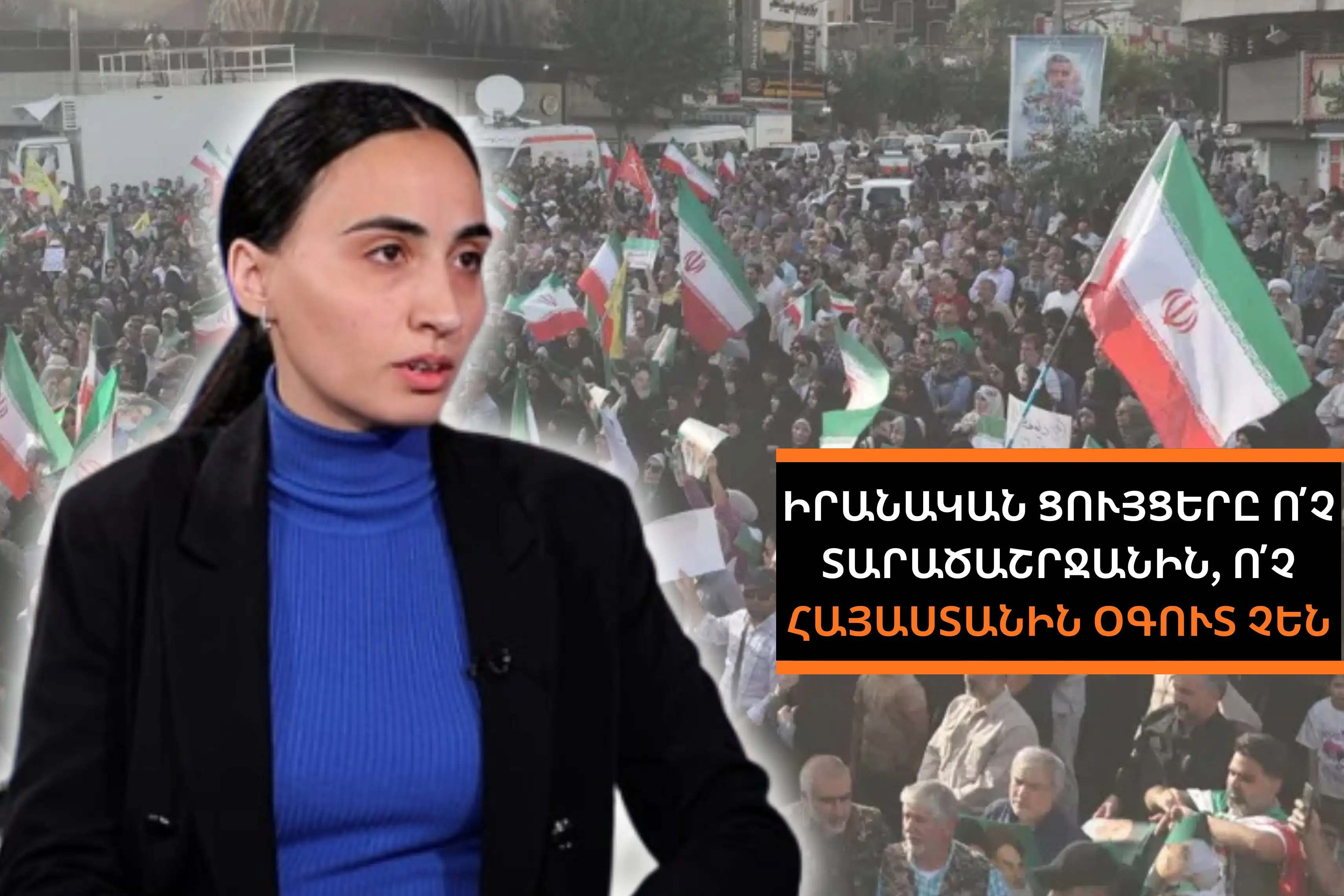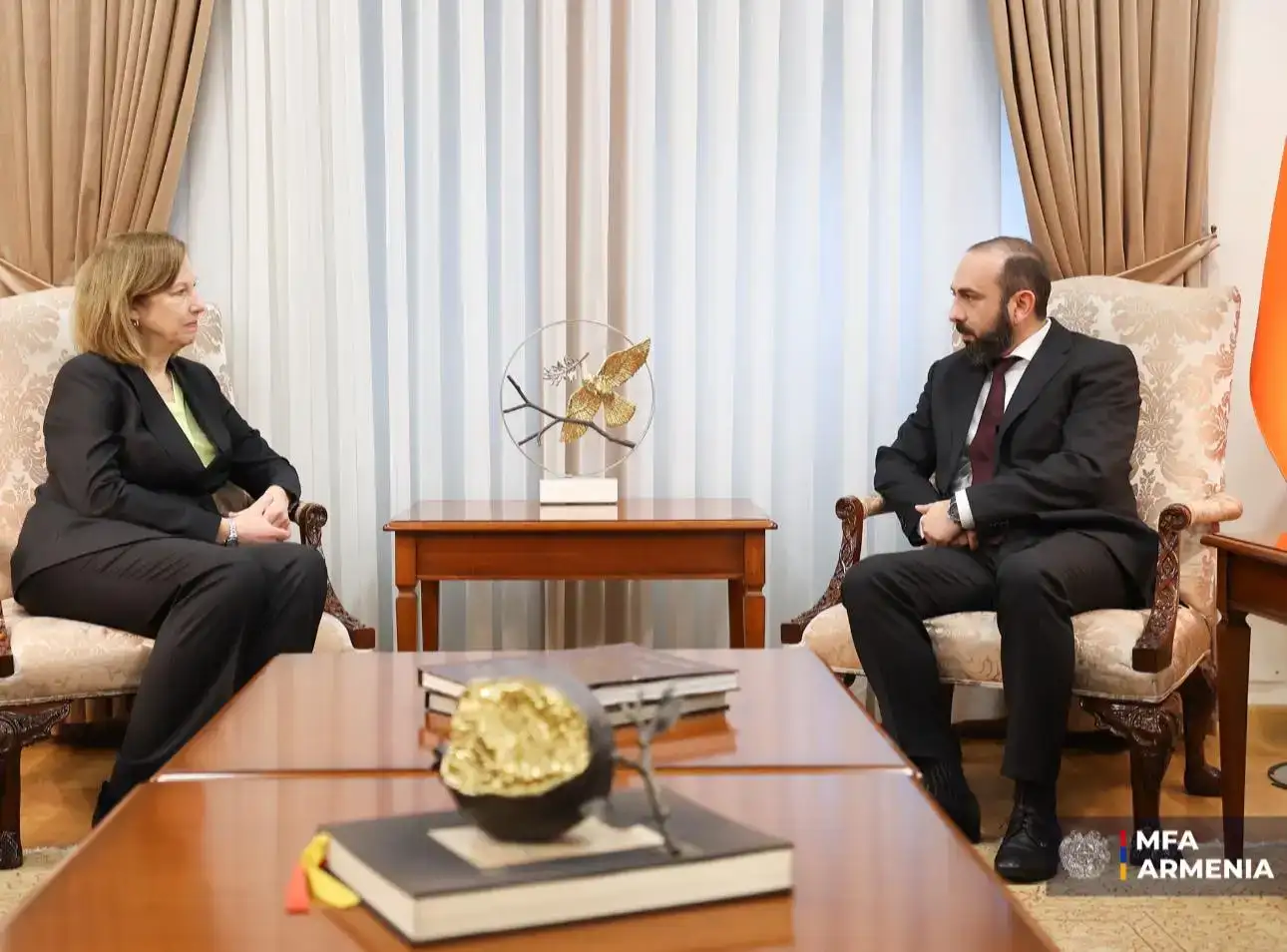On October 20, RA Foreign Minister Ararat Mirzoyan attended the EU ministerial meeting on “Interregional Security and Connectivity,” emphasizing Armenia's pursuit of regional peace and cooperation.
Minister Mirzoyan delivered a speech at the discussion on security, stability and resilience in the Black Sea region held within the framework of the ministerial meeting.
The Black Sea region has always been a crossroads of civilizations, trade, and geopolitical interests. It is an important link between Europe, the South Caucasus, and Central Asia. Enhanced cooperation here can contribute to connectivity and sustainable development. It can also lead to the formation of mutually beneficial partnerships and significantly transform the region's geopolitical and economic landscape. These are not just words or an ambitious vision, but today’s imperative.
In this context, we know that realizing this vision is possible only with peace and stability. Currently, the Black Sea region faces serious challenges, especially due to the ongoing war in Ukraine. This conflict has caused great human suffering. Meanwhile, the South Caucasus has recently moved toward lasting peace. On August 8, 2025, a historic event took place in Washington: the leaders of Armenia, Azerbaijan, and the United States signed the well-known Joint Declaration. The Agreement “On the Establishment of Peace and Interstate Relations between Armenia and Azerbaijan” was also initialed by me and the Minister of Foreign Affairs of Azerbaijan.
Thus, peace has been established, and the three leaders have shown strong commitment to strengthening it. This creates a solid foundation to turn the page on hostility. It opens a new era of good-neighborly relations based on mutual respect, sovereignty, territorial integrity, and inviolability of borders. All of this aligns with the UN Charter and the 1991 Alma-Ata Declaration.
The way forward requires patience, care, and addressing practical issues. It also depends on strengthening mutual trust. Armenia is committed to transforming opposition into constructive engagement and cooperation.
History teaches us important lessons. The European Union was born from the ashes of war. It was built on the idea that shared economic interests, first in coal and steel, could make future conflict irrational.
Armenia, situated at a crossroads, can play a crucial role in connecting Europe, the South Caucasus, and Central Asia. The unblocking of transport links between Armenia and Azerbaijan, agreed on August 8, will promote new, mutually beneficial transport routes. These include Armenia’s “Crossroads of Peace” project and its component, the TRIPP (Trump Path for International Peace and Prosperity) route in Armenia. All these projects will operate under the full sovereignty, territorial integrity, and jurisdiction of the states involved.
By strengthening this chain, we can build mutual trust, interdependence, and sustainable growth. As European Commission President Ursula von der Leyen said at the EU-Central Asia Summit: “The opening of Armenia’s borders with Azerbaijan and Turkey will be a game-changer.”
This is why we welcome the establishment of the EU Coordination Platform on the Trans-Caspian Transport Corridor. Armenia stands ready to be an active and constructive partner in its success. We will support it through our “Crossroads of Peace” project and the TRIPP pathway within the EU’s Global Gateways initiative.
This new era of security and stability in the South Caucasus is further strengthened by Armenia’s commitment to building resilience. Our partnership with the European Union plays a central role. We have added a major security component to the Armenia-EU bilateral agenda. Our relations have expanded from political and economic cooperation to a strategic partnership.
The High-Level Political and Security Dialogue and regular security and defence consultations all help strengthen Armenia’s resilience. The EU Monitoring Mission in Armenia, the agreement for Armenia’s participation in EU Common Security and Defence Policy missions, and support through the European Peace Facility also make a difference. Programmes like Resilience and Growth and the Strategic Partnership Agenda contribute to ongoing growth.
Nevertheless, Armenia faces rising hybrid threats, including foreign information manipulation and interference. Addressing these challenges is vital to achieving long-term security and regional stability—our central goal.
These are not isolated actions, they are targeted, coordinated, hostile campaigns aimed at achieving specific goals, including undermining trust in sovereignty and democratic institutions, undermining the aspirations for cooperation and like-minded partnerships.
The fight against this requires strong, trust-based cooperation between states that share a commitment to the fundamental principles and norms of international law, as well as to a democratic way of life.
Dear colleagues, in these efforts you can count on cooperation with Armenia as a reliable partner. Thank you.”
Within the framework of the ministerial meeting on “Interregional Security and Interconnectivity”, Minister Mirzoyan also had contacts with the Foreign Ministers of Luxembourg, Slovenia, Latvia, Turkey, Denmark, the EU Commissioner for Enlargement and other partners.





















